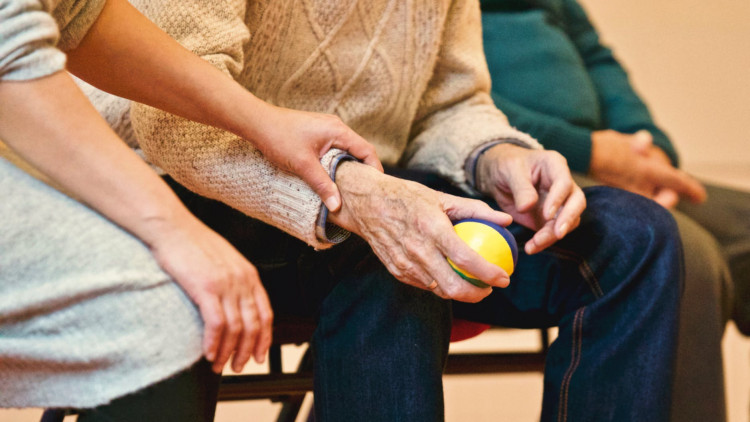Dementia patients are more at risk of experiencing dehydration than other people. Because of their health problem, dementia patients end up completely losing their thirst and forgetting how to use cups or glasses. They don't even know how to inform people around them their need to hydrate anymore.
Unfortunately, it is not easy to maintain every patients' hydration. But since dehydration could lead to other health issues such as weakness, lowered blood pressure, dizziness, and even worse mental performance, as reported by High-Speed Training, experts, families, and friends are doing their best to make sure their patients get hydrated.
Pat, the grandmother of Lewis Hornby, who is the inventor of Jelly Drops, is one of the 46.8 million people suffering from dementia worldwide. After she was hospitalized due to dehydration, Lewis decided to invent something that could help his grandmother not to get dehydrated anymore.
Inspired by how Pat craves for sweet stuff, Lewis created raindrop-shaped sweets that are made up of electrolytes and 90% water. After several months, with the help of dementia psychologists, doctors, nurses, and caregivers, he was finally able to finish his sweet and chewy invention-the Jelly Drop.
"Jelly Drops are hydrating treats for people with dementia, designed to overcome a lot of the issues they face in care homes," states Hornby. According to him, there is also no need to worry how these treats can be eaten as "they're solid all the way through," which allows the patients to hold and eat it without hassle.
Furthermore, the gummies are also available in bright, different colors, and different flavors, which aim to attract patients to consume the product more. These chewable aren't easy to digest too. This gives the body more opportunity to maximize the product.
Because of how promising this product is, the Jelly Drops have already received several awards and recognitions. It even received support from the Alzheimer's Society through its Accelerator program. Through the program, the group of people behind the Jelly Drops will be receiving about £100,000 just to improve their product and be able to distribute it to people who badly need it, according to Alzheimer's Society.
The Jelly Drops doesn't offer a cure for dementia. But the product can surely ease the suffering of those who have the disease.
Meanwhile, since Jelly Drops are still under development, the product is not available in the market yet. The Alzheimer's Society will still have to work hand in hand with the team to help with the production, innovation, and distribution of the product.






